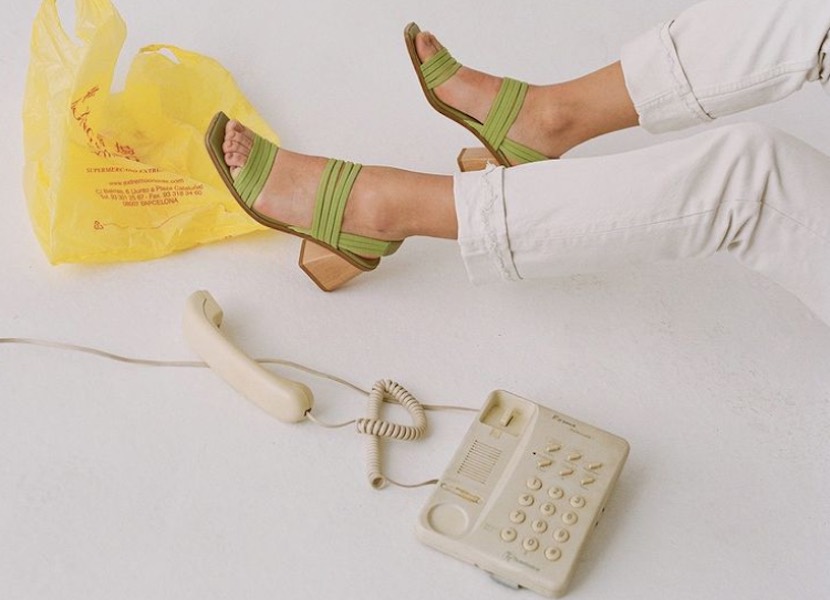Understanding job rejection and how to bounce back from it
IMAGE VIA @PALOMAWOOL/INSTAGRAM
WORDS BY LEEANN BUSHNAQ
Start looking at rejection as redirection.
Rejection comes in all shapes and sizes. As bleak as it sounds, it’s inevitable. Social, romantic, and familial rejection are all commonly discussed rejections that leave us feeling hopeless. But professional rejection often goes unnoticed.
Let me set the scene. You’re weeks into your job hunt, and finally, the perfect job is on your browser staring back at you. An initial feeling of elation hits, and then it’s time to get your shit together and apply.
Looking for a new 9 to 5? Head to our Careers page for new listings daily.
From researching the company to perfecting your resume, you spend hours preparing. A second dose of elation washes over you as you hit the apply button. Now your fate is in someone else’s hands. In the meantime, your imagination runs wild, relishing in the idea of scoring the role of your dreams.
All of that comes to a halt when ‘After careful consideration, we regret to inform you that your application will not move forward,’ pops up on your screen.
As someone who has faced a handful of job rejections – yes, I am publicly admitting it – I wanted to understand why it stings so much and if there’s anything I could be doing better after so many successive blows. So I spoke to organisational psychologist Dr Michelle Pizer on the psychology of rejection and how to cope with and bounce back from it in an employment context.
The psychology of rejection
According to Dr Michelle, humans have a fundamental need to belong, and job rejection signals to us that we don’t belong in a job based on an employer’s preferences.
“It’s two rejections in one, because not only do we not get the job, but we also notice that they preferred someone else over us. Another need we have is to be validated for who we are, just as we are… Rejection tells us that we’re not okay as we are. But that’s also not true, because there’s a difference between who you are as a person, and your perceived ability to do a job well,” she explains.
Dr Michelle tells me that our outlook on rejection is heavily dependent on our degrees of sensitivity as individuals. Childhood experiences like neglect and abuse, and characteristics including low self-esteem and social anxiety all impact how sensitive we are to being rejected.
“Some of us have a greater sensitivity to rejection than others… More sensitive people can be their own worst enemy. They can be more likely to look for cues of rejection, or more likely to misinterpret behaviours as rejection.
“They’re also more likely to avoid putting themselves in situations in fear of being rejected. Not necessarily in jobs, but they may get knocked back and take longer to regroup because they’re more sensitive to it than others.”
I ask her whether job rejection hurts more as you progress through the employment process. She says that rejections of all calibres can hurt, but the further into the hiring process you are, the more painful it becomes.
“You know you’re a contender, and then all of a sudden, you’re not… It’s a bigger disappointment because you got past all those hurdles. Your hopes are up, and you start imagining yourself doing it and being there.”
After understanding the psychology, I wanted to know Dr Michelle’s best emotional strategies and practical tips to build resilience and move forward following job rejection.
Don’t put all your eggs in one basket
Dr Michelle suggests applying for more than one job if possible to give yourself the best possible opportunity to get hired. “If we get our hearts set on a particular job, it will hurt more. It’s smarter not to put all your eggs in one basket, because there is more than one job out there.
“It’s like dating. If you’ve had a crap date, you don’t wait around and wallow in that, you look for the next person. Ask yourself, ‘What’s my next basket? Where do I look next?’ If it’s not that door, it’s the next one, because you will land somewhere eventually. You just have to believe in yourself and keep trying until the right door opens,” she tells me.
Know it’s not personal
When asking Dr Michelle how we can better handle job rejection, she tells me that not taking it personally is key to building resilience.
“It’s fine to feel your feelings, but what’s not good is to wallow in them. If anyone finds themselves in that place, they should get some professional support. It is a numbers game, so you have to get back on the horse and get back into the game. You don’t want to take yourself out,” she explains.
“If you don’t get past submitting your resume, then they didn’t meet you at all. It’s [definitely] not personal. They just have some criteria, and you [on that occasion] didn’t pass their arbitrarily made test.”
Search for jobs using different channels
Sometimes to bounce back from rejection, we need to find new, exciting ways to job hunt. Dr Michelle tells me that bypassing formal channels can be just as successful, and more enjoyable than the standard application process.
“I got my last three corporate jobs by bypassing the application process altogether. It wasn’t deliberate. I’m interested in market research, so I went to an old lecturer and she introduced me to her friend [in the field]… We had a chat… and he offered me a job.
“Some people call them informational interviews. A lot of people will give people 10 to 15 minutes of their time just to have a chat and talk to them about their career.”
To do this, she encourages making the most of LinkedIn to find people in roles you’re curious about. She recommends reaching out to them to ask what it’s like working in their role, or at their company.
Focus on your strengths
Committing to learning and improving is an invaluable tool to cope with job rejection, Dr Michelle says. Assessing yourself, identifying your strengths, and developing them is a strategy that boosts confidence and improves employability.
“You have to keep on learning. It’s good to know your strengths and build on your strengths because you’ll typically have an easier time,” she tells me.
Rejection is normal and our response to it is natural. As complex as dealing with job rejection may be, we’re more than capable of turning our employment tragedies into triumphs.
To learn more about handling job rejection, head here.










